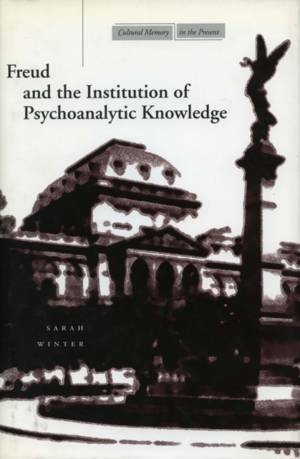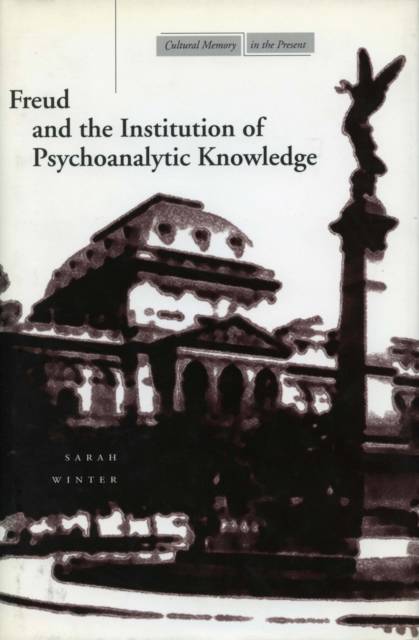
- Afhalen na 1 uur in een winkel met voorraad
- Gratis thuislevering in België
- Ruim aanbod met 7 miljoen producten
- Afhalen na 1 uur in een winkel met voorraad
- Gratis thuislevering in België
- Ruim aanbod met 7 miljoen producten
Omschrijving
How did psychoanalytic knowledge attain a dual status both as common sense about the "inner life" among the educated and as seemingly indispensable psychological expertise during the first half of the twentieth century? Combining approaches from literary studies and historical sociology, this book provides a groundbreaking cultural history of the strategies Freud employed in his writings and career to orchestrate public recognition of psychoanalyis and to shape its institutional identity.
The author argues that a central element of Freud's institutionalization project was his theoretical appropriation of Greek tragedy. He derived cultural authority and legitimacy for psychoanalysis by adopting the generic conventions and "universal" relevance of Sophoclean tragedy, as well as the prestige of classical education, in his elaboration of the Oedipus complex. As the author shows, Lacanian psychoanalysis has followed Freud's lead in purveying an ahistorical reading of Sophocles' Oedipus plays to authorize its reimagining of the Oedipal subject.
The cultural salience of psychoanalytic knowledge also emerged in the contexts of the social prominence of professionalism and the academic consolidation of the social science disciplines at the turn of the century. Through a detailed examination of Freud's writings on culture, psychoanalytic technique, and the history of the psychoanalytic movement, the book delineates his attempts to establish psychoanalysis both as a profession and as an epistemologically essential master discipline by competing directly with research in philosophy, anthropology, sociology, and academic psychology.
In the current controversy over Freud's legacy, the author offers a critical assessment of the institutional opportunities and constraints that have conditioned the cultural fate of psychoanalytic knowledge in the twentieth century.
Specificaties
Betrokkenen
- Auteur(s):
- Uitgeverij:
Inhoud
- Aantal bladzijden:
- 408
- Taal:
- Engels
- Reeks:
Eigenschappen
- Productcode (EAN):
- 9780804733069
- Verschijningsdatum:
- 1/11/1999
- Uitvoering:
- Paperback
- Formaat:
- Trade paperback (VS)
- Afmetingen:
- 153 mm x 229 mm
- Gewicht:
- 530 g

Alleen bij Standaard Boekhandel
Beoordelingen
We publiceren alleen reviews die voldoen aan de voorwaarden voor reviews. Bekijk onze voorwaarden voor reviews.












